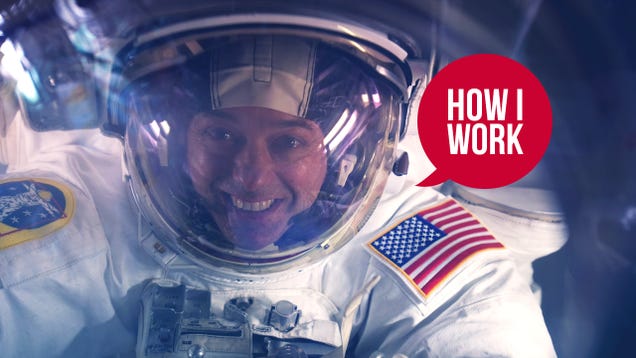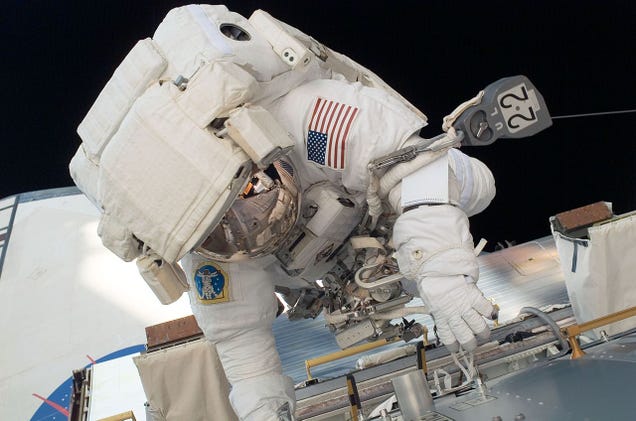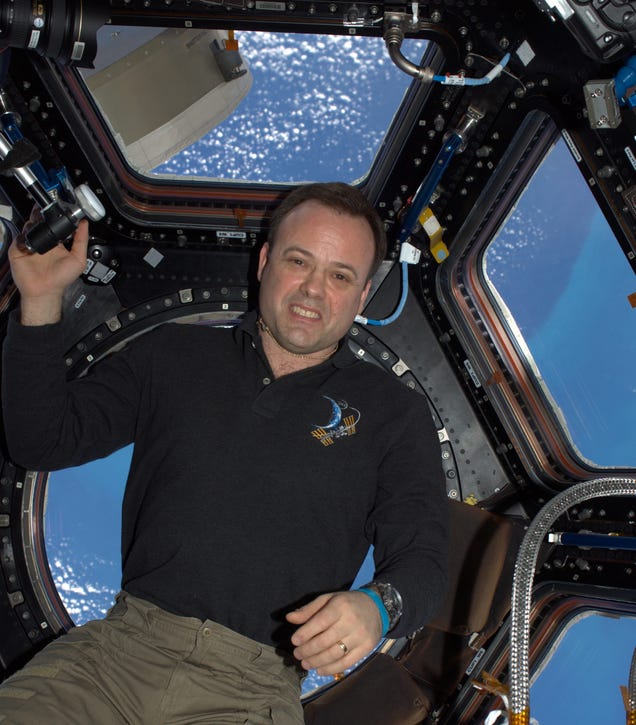
Perhaps the challenges facing the Earth become more clear from a distance. Such is the experience of Col. Ron Garan, an astronaut, veteran fighter pilot, and social entrepreneur who advocates international cooperation and empathy to help us address the problems of the world.
Col. Ron Garan spent more than 178 days in space, and his time aboard the International Space Station was a transformative experience. (I imagine space travel often is). In his new book The Orbital Perspective, Col. Garan describes how countries that were at war mere decades ago are now collaborating on one of the most complex and impressive engineering feats of our time—the International Space Station—and why we need to embrace the same empathetic world view back down on the ground.
He's also the founder of Fragile Oasis, a grassroots initiative advocating this same perspective to help humanitarian needs. We caught up with Col. Garan to learn a little about how he works when he's not in low gravity environments.
Location: Spaceship Earth
Current Gig: Book Signer
One word that best describes how you work: Hard
Current mobile device: iPhone 5
Current computer: MacBook Air
What apps, software, or tools can't you live without?
Refrigeration, indoor plumbing, and Evernote (in that order).
What do you use Evernote for?
Organizing notes and linking with my mobile device so I can access them on the run.
What's your workspace setup like?
Today it's on the couch with my feet up. In the past it was floating 240 miles above the Earth typing on a floating laptop with a great view.

Let's talk a little about the book—the central tenet is that the "orbital perspective" makes it obvious that nations need to cooperate and work together to solve the large problems facing humanity. Did you anticipate this new perspective, or was it a surprising side effect of your time in space?
The need for a deeper level of collaboration across all sectors not just between nations was an "epiphany is slow motion" that developed after months of seeing our world from space.
How can everyday people apply this idea of the "orbital perspective" to their lives?
You don't have to be in orbit to have an Orbital Perspective. This is one of the main points of the book and why I cite so many examples of people acting with an orbital perspective who have never been in space. We apply the orbital perspective by acknowledging the framework that we've constructed to view the word, by considering the long term/big picture implications of our words and actions and above all else by practicing what I like to call "elevated empathy."
What's your best time-saving shortcut or life hack?
I travel a lot so I fly aboard spacecraft whenever I can. Traveling at five miles per second gets you places fast, but only so far.
What's your favorite to-do list manager?
If I had a to-do list manager I wouldn't be running around with my hair on fire.
Besides your phone and computer, what gadget can't you live without and why?
My GoPro camera–to catch the action.
What everyday thing are you better at than everyone else?
Telling bad jokes–the secret to telling bad jokes is to tell as many jokes as you can and it is statistically guaranteed that you will have some really bad ones (I think I had a few here).
What do you listen to while you work?
It's interesting that on Earth I prefer quiet while I work—in space I prefer music in the background. Because in space we're detached from the Earth and listening to music while I work, for me, was very soothing. It reminded me of home (Earth).
What sort of music did they play on the ISS?
Before I flew on my six month mission to the ISS, I asked people around the world to suggest songs for my playlist. This is what they came up with.
Ron serenades the ISS crew:
What are you currently reading?
Poor Economics: A radical rethinking of the way to fight global poverty by Abhijit V. Banerjee and Esther Duflo.
Are you more of an introvert or an extrovert?
Maybe both.

What's your sleep routine like?
Late to bed early to rise.
Fill in the blank: I'd love to see _________ answer these same questions.
Sir Isaac Newton.
Why Sir Isaac Newton?
Because very few people in human history had a greater ability to think outside the box.
What's the best advice you've ever received?
Do it with Joy.
Is there anything else you'd like to add that might be interesting to readers and fans?
You don't have to be in orbit to have an Orbital Perspective.
Follow Col. Ron Garan on Twitter and Facebook, and check out the new book.
The How I Work series asks heroes, experts, and flat-out productive people to share their shortcuts, workspaces, routines, and more. Every other Wednesday we'll feature a new guest and the gadgets, apps, tips, and tricks that keep them going. Have someone you want to see featured, or questions you think we should ask? Email Andy .
Additional photo via Wikicommons.
via Andy Orin

0 comments :
Post a Comment